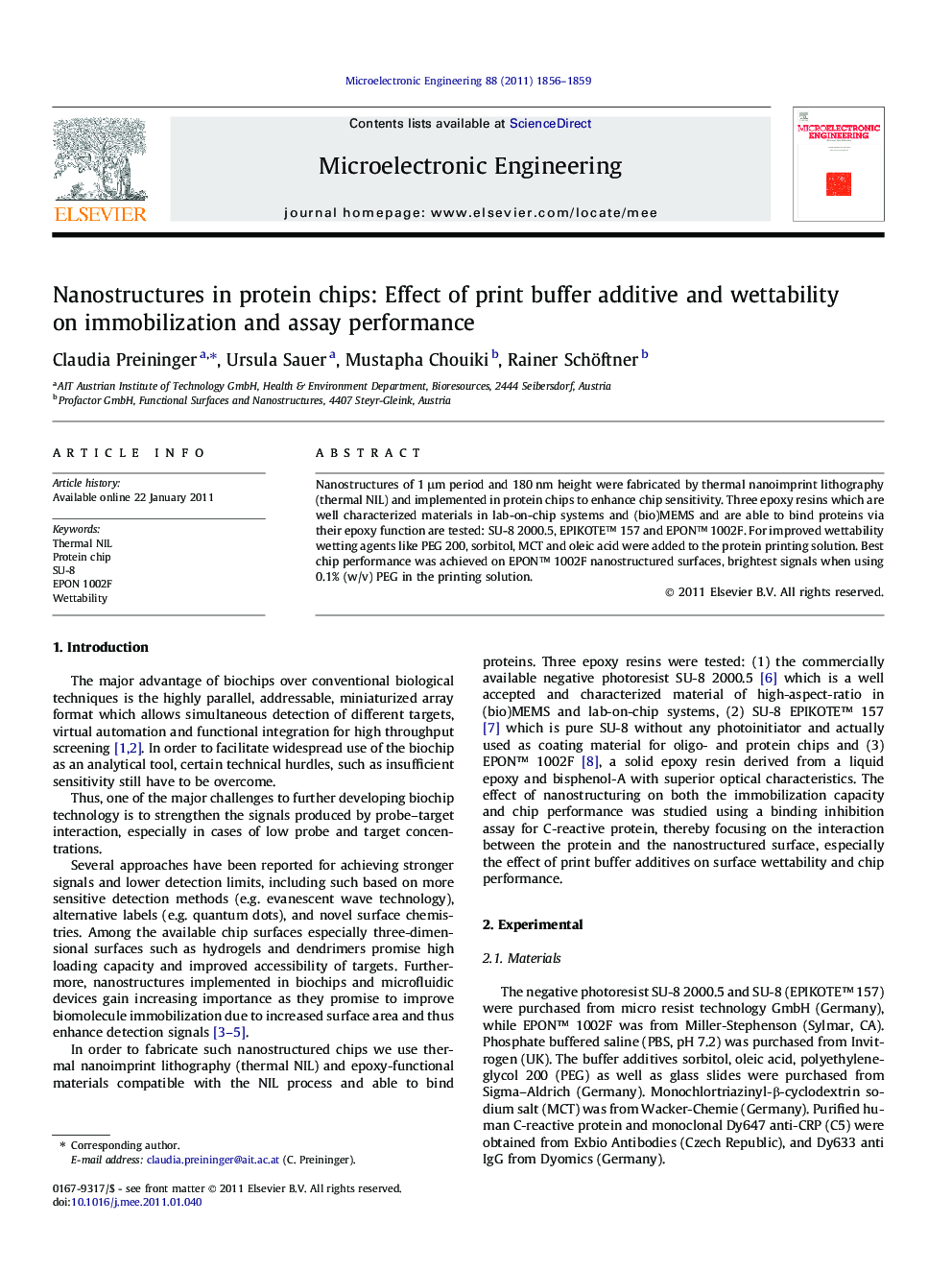| Article ID | Journal | Published Year | Pages | File Type |
|---|---|---|---|---|
| 540395 | Microelectronic Engineering | 2011 | 4 Pages |
Abstract
Nanostructures of 1 μm period and 180 nm height were fabricated by thermal nanoimprint lithography (thermal NIL) and implemented in protein chips to enhance chip sensitivity. Three epoxy resins which are well characterized materials in lab-on-chip systems and (bio)MEMS and are able to bind proteins via their epoxy function are tested: SU-8 2000.5, EPIKOTE⢠157 and EPON⢠1002F. For improved wettability wetting agents like PEG 200, sorbitol, MCT and oleic acid were added to the protein printing solution. Best chip performance was achieved on EPON⢠1002F nanostructured surfaces, brightest signals when using 0.1% (w/v) PEG in the printing solution.
Keywords
Related Topics
Physical Sciences and Engineering
Computer Science
Hardware and Architecture
Authors
Claudia Preininger, Ursula Sauer, Mustapha Chouiki, Rainer Schöftner,
